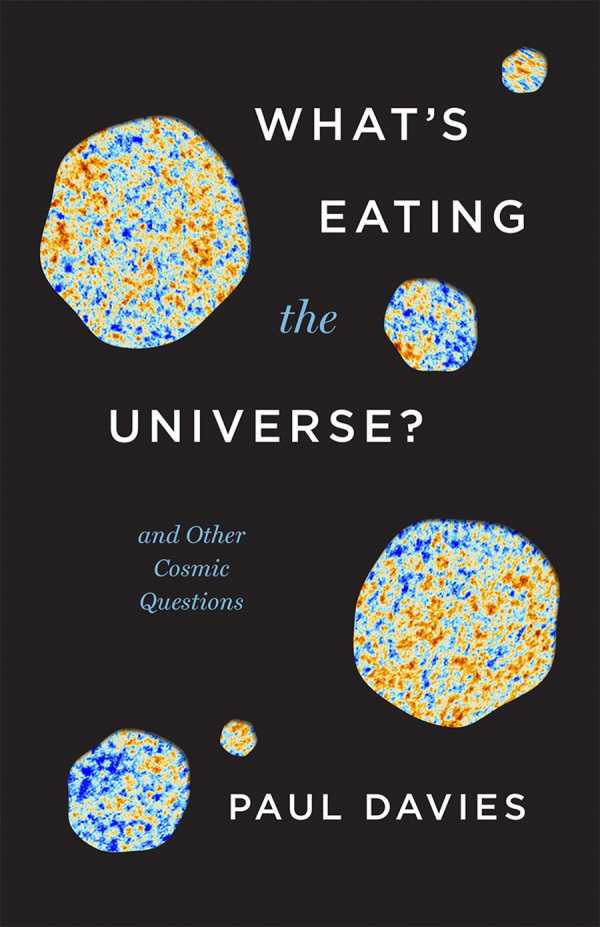What's Eating the Universe?
And Other Cosmic Questions
Dark matter, black holes, dark energy: with all this shadowy terminology in play, it’s no wonder when laypeople find cosmology off-putting, so What’s Eating the Universe? illumines the mysteries of quantum physics in a nonthreatening way.
Everyone is curious about origins, and a 1990 heat map showing the Big Bang’s afterglow only fueled more questions. But Paul Davies argues that the universe is simple, operating in accordance with the universal laws of physics. In the three decades since that picture captured the collective imagination, he notes, “the field has been transformed from a speculative backwater to a precision science.”
With chapter titles that take the form of questions, like “What Is the Speed of Space?” and “How Many Universes Are There?”, the book extends invitations to learn. Its style is informal and conversational, as when Davies remarks “now here’s something to make your head spin.” In a helpful analogy of universe expansion, he offers an image: students join hands to form a circle, with their teacher standing in the middle. When the teacher tells them all to take five steps back, the circle enlarges to create more space between students and a greater distance from the teacher. Though caveats abound, such metaphors are beneficial.
Davies’s inset boxes go into more detail on particular equations, theories, and concepts, which are also illustrated with black-and-white figures. Central characters from the history of cosmology dart through the pages, and unexpected nuggets of knowledge arise, like: the combined light of the stars equates to less than a ten-billionth of the brightness of the sun; and time travel is possible in principle, according to the theory of relativity.
Davies is no lofty expert—he’s a fellow inquisitive journeyer, and What’s Eating the Universe? lives up to his promise of an alluring “scientific detective story.”
Reviewed by
Rebecca Foster
Disclosure: This article is not an endorsement, but a review. The publisher of this book provided free copies of the book to have their book reviewed by a professional reviewer. No fee was paid by the publisher for this review. Foreword Reviews only recommends books that we love. Foreword Magazine, Inc. is disclosing this in accordance with the Federal Trade Commission’s 16 CFR, Part 255.

